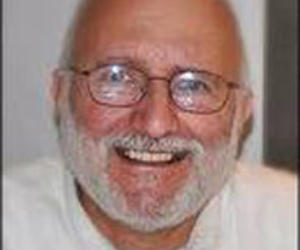Gross trial opens in Cuba with ‘vigorous’ defense
- Submitted by: manso
- Politics and Government
- 03 / 05 / 2011

On the first day of the trial of American Alan P. Gross, his Cuban lawyers were said to have offered a “vigorous” defense of their client.
A lawyer for U.S. government subcontractor Alan P. Gross said his client put up “a vigorous defense’’ Friday on the first day of a trial in Cuba that could send him to prison for 20 years for giving communications equipment to independent groups.
The trial of the 61-year-old resident of Potomac, Md. — closed to the foreign news media — lasted nearly nine hours during its opening session and was to resume at 9:30 a.m. Saturday for a possibly final session.
His U.S. lawyer, Peter J. Kahn, who attended the session, issued a statement saying almost nothing about what happened in the courtroom but urging the Cuban government to free Gross as a humanitarian gesture.
Gross “has already served 15 months in a Cuban prison. While Alan and his Cuban counsel presented a vigorous defense today, we respectfully urge the Cuban authorities to free Alan immediately for time served,’’ Khan said in a statement released by his Washington law firm, Williams & Connolly.
“Alan’s health continues to deteriorate as a result of his dramatic weight loss, other physical ailments and the extreme mental stress and anguish he continues to endure,’’ Kahn added. “The recent lung cancer diagnosis of his elderly mother and his 26-year old daughter’s ongoing recovery from a double mastectomy have created an even more urgent need for Alan to be reunited with his family.”
Khan and Gross’ wife Judy were seen leaving the court building, a converted family home in the 10 de Octubre municipality just south of Old Havana. U.S. consular officials also were allowed in the courtroom, said Gloria Berbena, a spokeswoman for the U.S. diplomatic mission in Havana.
Foreign reporters and photographers were kept across the street from the courthouse, amid a strong deployment of police for several blocks around the neighborhood, a journalist told El Nuevo Herald by phone from Havana.
Prosecutors have said they would seek a 20-year sentence for Gross’ “acts against the integrity and independence’’ of Cuba, under Article 91 of the penal code of 1987 that outlaws “actions in the interest of a foreign government.”
He was arrested in Havana Dec. 3, 2009 as he worked for Development Associates International, a Maryland firm contracted by the U.S. Agency for International Development (USAID) to help pro-democracy and civil society groups in Cuba.
Cuban officials allege that the USAID programs are designed to topple the communist government and brand the recipients of the U.S. aid as “mercenaries.”
Gross delivered at least one satellite telephone and other communications equipment to Jewish groups and "other marginalized groups’’ so they could communicate with each other and the outside world, according to various U.S. government reports.
Among those spotted entering the courtroom Friday morning was William Miller, the only member of Cuba’s tiny Jewish community who has acknowledged having met Gross.
Community leader Adela Dworin has repeatedly denied knowing Gross.
With U.S. officials claiming that Gross did not violate Cuban law — “What he did is not a crime,” State Department spokesman Philip Crowley said last month — his 15-month detention has become the key stumbling block in Obama administration efforts to improve relations with Havana.
“He has been unjustly jailed for far too long,” said Secretary of State Hillary Clinton. “We call on the government of Cuba to release him and unconditionally and allow him to leave Cuba and return to his family.”
Most analysts expect that Gross will be convicted and sentenced, but then will be freed within months as a “humanitarian gesture.” A senior U.S. State Department official said in January that Cuban officials had hinted Gross would be freed soon.
Kahn’s statement about a “vigorous defense’’ put to rest speculation that Gross would plead guilty and ask for mercy from the panel of three professional judges and two common citizens appointed for brief periods. Cuban judges usually issue a verdict quickly, then take weeks or months to announce the sentence.
The Gross trial sparked calls by U.S. critics of the sometimes semi-covert Cuba democracy programs, run by USAID and budgeted for about $20 million a year, to make them less provocative to Havana.
It “shows that the programs as currently constituted may do more to provoke the Cuban government than to promote democracy, and they endanger the American contractors who work on them,” said a statement by the Washington Office on Latin America.
Two strong critics of U.S. sanctions on Cuba — academics Lawrence Wilkerson and Arturo Lopez-Levy — meanwhile co-authored a column in the Web site The Washington Note calling for Gross’ release on humanitarian grounds and adding that his trial would serve three Cuban government goals:
• ‘‘Mobilize the nationalist sentiments of the Cuban people to denounce foreign interference in Cuba’s internal affairs.”
• ‘‘Set an example and deter other Cubans, Americans, and nationals of third countries from participating in regime change programs.”
• ‘‘Generate international condemnation of US policy and invigorate solidarity with Cuban sovereignty.”
Source: www.miamiherald.com/2011/03/04/v-fullstory/2098563/gross-trial-opens-in-...
Comments